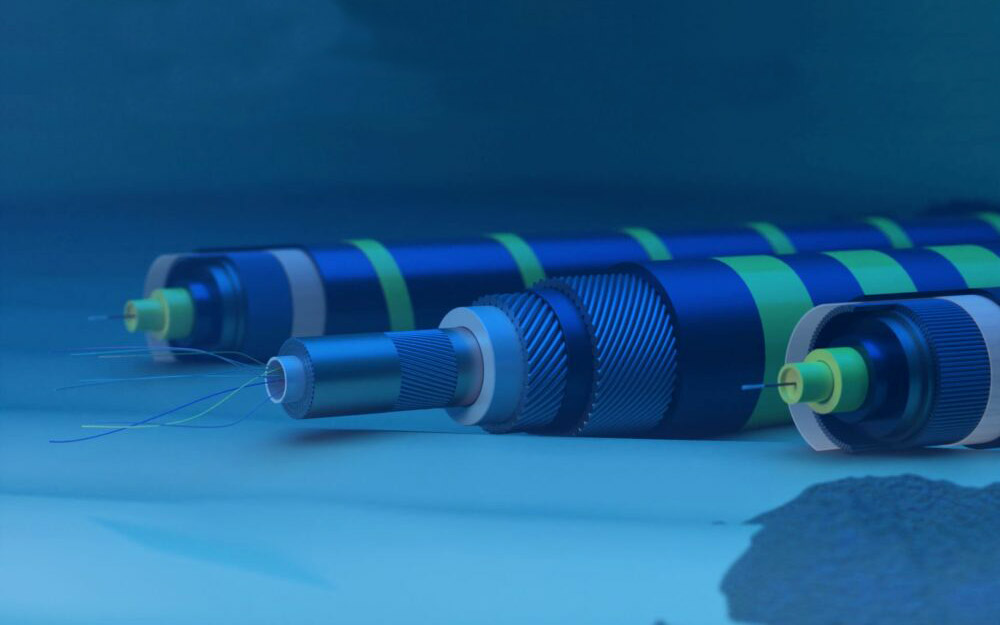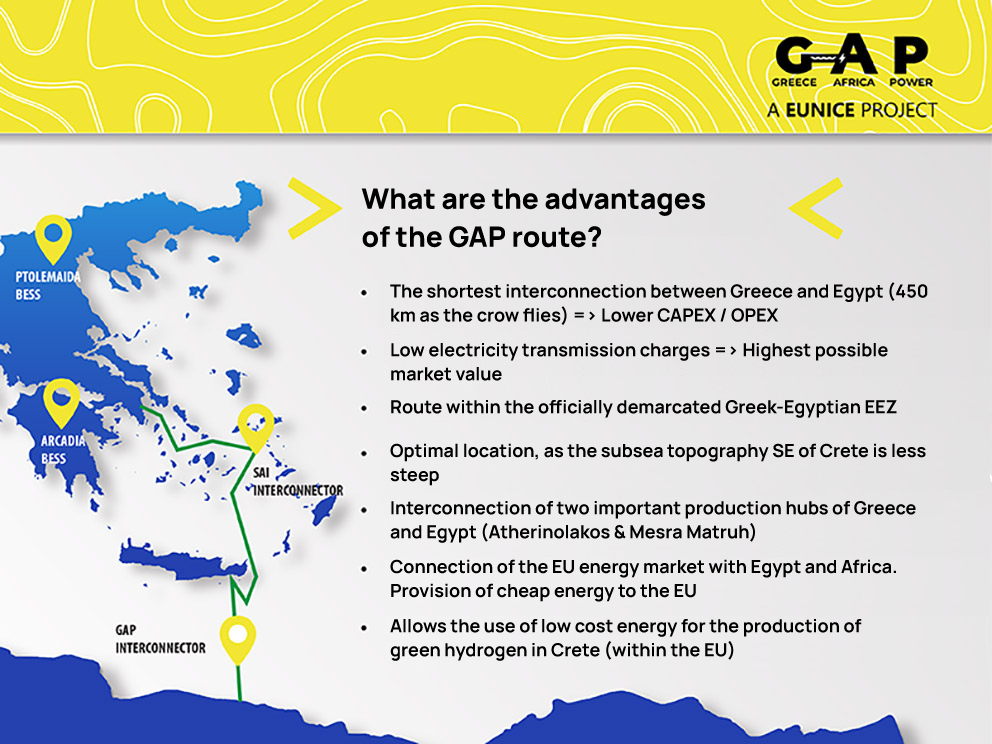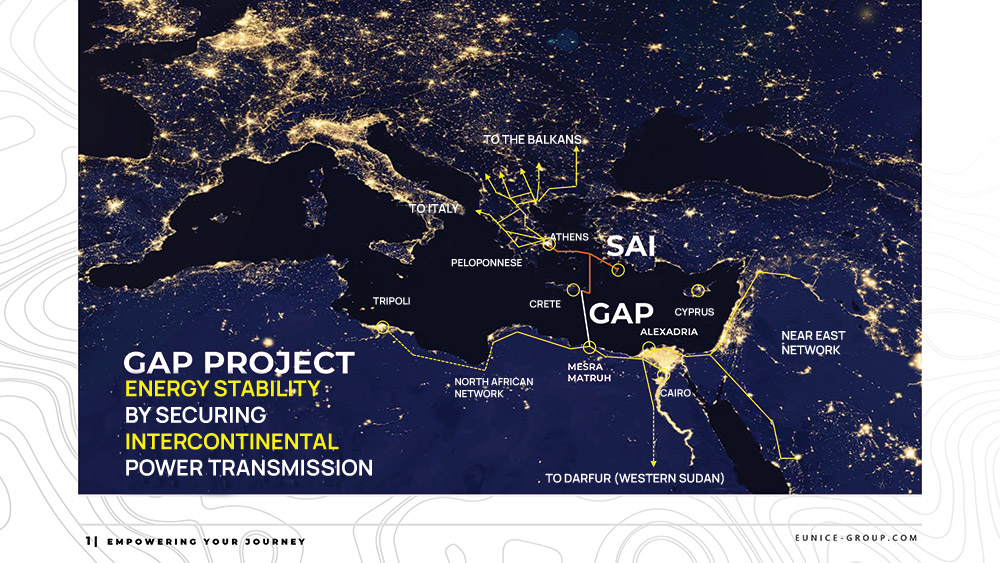The regional power interconnection that makes Greece a key country for the geostrategic security of Europe
The long-term ‛securing’ of our country through the use of an energy mix dominated by fossil fuels, mostly composed of lignite and imported oil, offered low energy prices over long periods of time, but on the other hand has resulted in the abandonment of plans for a new energy policy that prioritises the development of green energy and the creation of regional partnerships in production and transmission of energy in Europe and the Eastern Mediterranean.
In addition to the ‛violent’ changes caused by the energy crisis and the need to decouple from Russian gas, the need to reduce the use of fossil fuels in order to reduce carbon dioxide emissions, the technological developments which have dramatically reduced the cost of producing, installing and exploiting renewable energy sources, and obviously the need to ensure access to large quantities of energy on economic terms, have played an important role in mobilising for a change in energy policy on international level.
Europe’s energy security passes through Greece
Greece is becoming one of the key countries for Europe’s energy security, acquiring an important role in the decoupling of the Balkan countries from expensive (in geopolitical terms) Russian gas, but also in achieving the demanding targets set by the EU for the transition to green and clean energy.
The country is a key gateway to South-Eastern Europe for natural gas. At the same time, electrical interconnections are progressing and old energy projects are being revitalised, such as the Burgas-Alexandroupolis oil pipeline and the ‛Vertical Gas Corridor’ between Greece, Bulgaria, Romania and Hungary, which will allow two-way gas flow, placing the country at an even more crucial spot on the European energy map.
The Power Interconnector and the role of Greece
The need for cheap and clean electricity is expected to skyrocket in both Greece and Europe as a whole, as European economies seek alternative energy supply routes to wean themselves off Russian natural gas and fossil fuels altogether. At the same time, considering the data provided by ADMIE, it is expected that the country will have a surplus of green energy for clean electricity exports.
Therefore, an international interconnector is expected to shield the resilience of the National Electricity Transmission System, strengthen international and domestic electricity interconnections, and turn Greece into an energy hub.
Against this backdrop, Greece is laying solid foundations to emerge in the coming years as a clean green energy exporter to continental Europe and the South East Mediterranean with the Greece-Egypt Power Interconnector (GAP) project.
Greece Africa Power Interconnector (GAP)
The project, a proposal of the Eunice Group, includes the connection of South-Eastern Crete with Egypt and the extension of this interconnection to Attica as the most suitable option for the power interconnection of the two continents.
The Greece-Africa power interconnector project is among the projects that are gathering strong support from both sides of the Mediterranean and is included in ten-year development plan of the European Network of Transmission System Operators for Electricity (ENTSO-E), TYNDP 2022.
The planned cable (2,000 megawatts) is characterised by significant advantages in terms of construction, geopolitical value, energy efficiency, economic viability, and potential for exploitation for the production of clean green energy. The project is expected to cost € 1.3 billion, with a completion date of 2030, and will enable the bi-directional supply of green energy to Greece and Egypt.
The main advantage of this interconnection is its highly competitive cost, as it is a cheaper solution than other similar projects, both in total and per unit of nominal transmission capacity (€/MW), implementing the interconnection at the point of greatest proximity between Crete and Egypt.
Completion of the GAP project will ensure addition of large amounts of electricity to the system at low prices. The low price of the electricity to be supplied by the Interconnector is not only due to the lower cost of the renewable energy produced in Egypt, but also to the design of the project. The GAP will interconnect the northern Mediterranean coast of Egypt with the island of Crete in Greece, at the point of closest proximity between the two countries, making it the shortest regional power interconnector in the Eastern Mediterranean, with a submarine cable stretch of only 400 km. This translates into reduced construction and maintenance costs, minimised energy losses and the setting of the transit tariff at levels that are much lower than other interconnection projects in the region. This last element significantly improves the economic viability of the project, ensuring the supply of cheap energy to the final consumer and leading to a convergence of energy markets without adding excessive costs.
The GAP interconnector will be supplemented with ‛natural’ extensions from Crete to Attica (Ariadni) and the Peloponnese (small interconnection), which will put an end to the energy ‛isolation’ of the island. A supporting role in Ariadne and the Small Interconnection projects will be played by the Southern Aegean Interconnector (SAI) which will interconnect Attica, the Dodecanese and Crete, facilitating the export of Greek clean energy from the Aegean islands to neighbouring countries.
As for its geopolitical dimension, the GAP project complies with European Regulations and the principles of International Law and reinforces Greek sovereign rights in the region, passing entirely through Greek territory and the delimited Greek-Egyptian EEZ, as required by the revised European Regulation (EU) 2022/869 on projects of common and mutual projects. It should be noted that a Memorandum of Understanding has already been signed between Greece and Egypt since 2021 for the electrical interconnection through the laying of a submarine cable with all that this entails for the protection of our country’s sovereign rights in the South-Eastern Mediterranean.
Crete: The new energy hub in the Eastern Mediterranean
Crete is one of the closest European points to Africa and the Middle East. The island already hosts a significant energy infrastructure, including conventional power plants (about 1.12 GW), Renewable Energy Sources (13 GW, projected to increase to 28 GW by 2030), and a high and medium voltage grid. An important parameter that strengthens Crete’s role as an energy hub beyond the GAP, is the construction by Greece’s the power transmission operator ADMIE of a major electrical interconnection between Crete and Attica, which is already underway and is expected to be completed in the summer of 2024. The combination of SAI and the Attica-Crete interconnection, complementary to GAP, reinforces the importance of the project. The above features and the development of infrastructure have upgraded Crete’s role to a major energy hub in the South-Eastern Mediterranean, capable of managing the transmission of power between three (3) continents.
The US votes for Greece in the Eastern Mediterranean
The reins of Greece-Africa Power Interconnector (GAP), the transnational Greece-Egypt power interconnection project, have been taken over by Andreas Borgeas, former member of the Senate in the US state of California. From his position as CEO, Mr. Borgeas is leading the initiatives to advance the international consortium in collaboration with the leaderships from Greece, Egypt, and the European Union and the GAP team of accomplished executives with long experience and high technical expertise to accelerate the completion of the power interconnector project between the continents of Europe and Africa.
Senator Borgeas is a outstanding and important executive for the GAP team, with particular expertise in the fields of law and international relations. The Greek-American-born Senator has served in a number of public offices, including as a prominent member of the Senate with the Republican Party (2018-2022) and as a federally appointed commissioner on the Committee on US-China Relations in the fields of economics and security. Throughout his political career, he has strongly defended Greek positions on key foreign policy issues.
At the same time, the GAP consortium continues to expand its network of collaborations, bringing in new members with significant experience in similar international-scale projects. Thus, McDermott and the Eunice Energy Group signed a Memorandum of Understanding (MoU), joining forces for the Greece-Egypt power interconnector in order to help building the energy future of the Eastern Mediterranean.
As a member of the consortium, McDermott, a leader in engineering, procurement, construction and installation (EPCI) in the subsea and deepwater space, will provide guidance in the design and construction of the project. McDermott’s innovative expertise and capabilities are advancing the next generation of global energy infrastructure, fostering a brighter and more sustainable future for all. Its locally focused and globally integrated resources include more than 30,000 employees, a diversified fleet of dedicated marine construction vessels, and construction facilities around the world.
US foreign policy is aligned with Greece’s strategic energy goals, and the GAP project represents a project of national importance for both countries. The high importance the US attaches to the geopolitical chessboard of the South-Eastern Mediterranean prioritises the construction of projects with such critical significance for the energy autonomy of the European continent.








